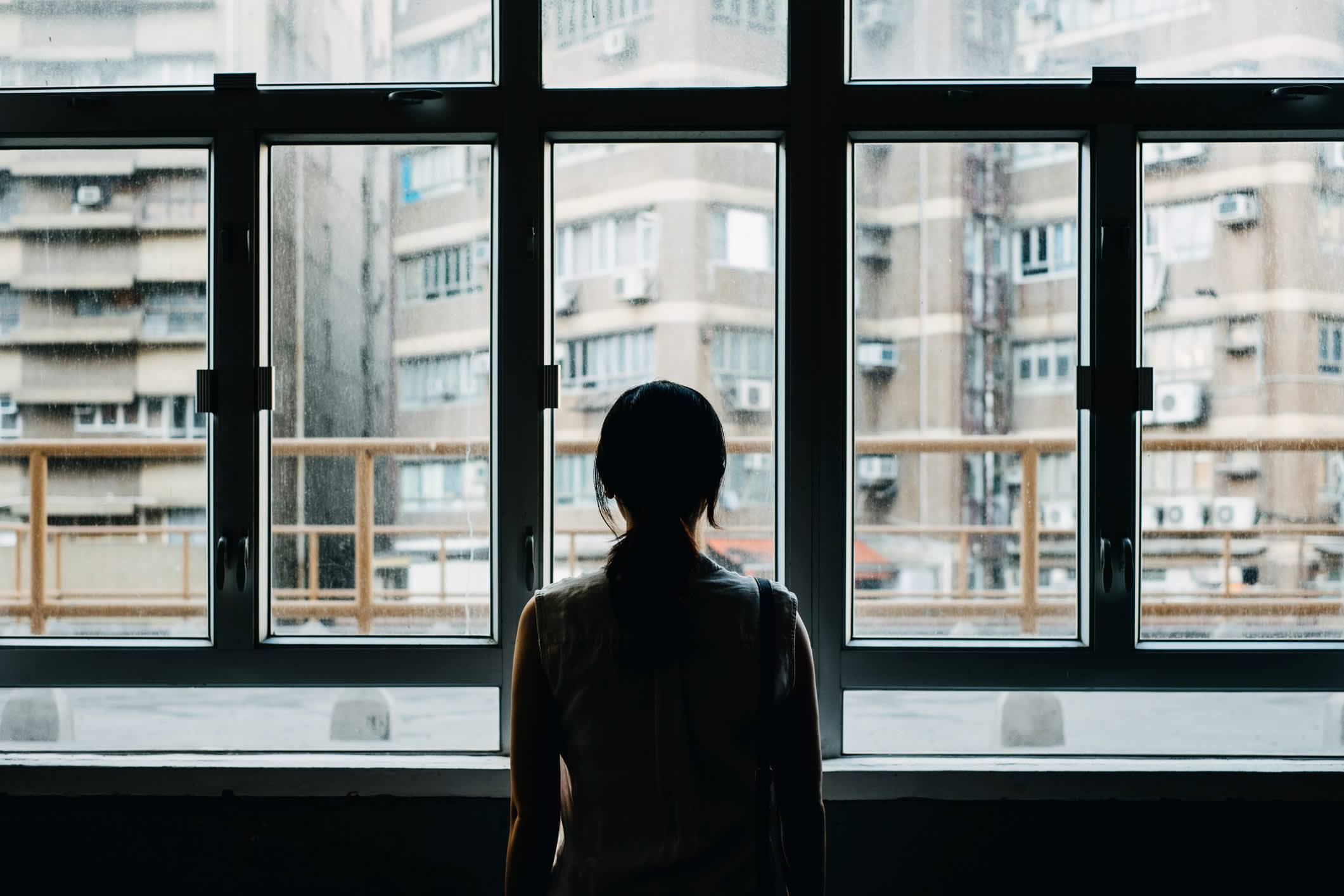What to Know
- The U.S. Surgeon General released a report last year announcing a loneliness epidemic, that the rates of isolation have skyrocketed and that loneliness can increase the risk for premature death as much as smoking 15 cigarettes a day. This isolation was driven by the lockdowns from the COVID-19 pandemic.
- A general increase in screen time among young people has long been painted as the villain in this scenario, maligned and criticized as the reason behind everything from the increase in mental health issues among teenagers to the fraying of community ties across America.
- Given the numerous barriers to effective community building for young adults, trying to do so can seem like an impossibly daunting task. Young women, in particular, have taken advantage of the social organizing opportunities these platforms provide.
America is in a loneliness crisis.
The U.S. Surgeon General released a report last year announcing a loneliness epidemic, that the rates of isolation have skyrocketed and that loneliness can increase the risk for premature death as much as smoking 15 cigarettes a day. This isolation was driven by the lockdowns from the COVID-19 pandemic.
When nationwide lockdowns became the norm in 2020, isolation also became the norm for millions of young people who had been in high school, college, or were just entering the workforce. The forced isolation that came with the pandemic stunted those efforts for millions of young people, accentuating a loneliness crisis that had already been brewing for many reasons, including a lack of third spaces in the United States and an increase in social media usage, among other things.
A general increase in screen time among young people has long been painted as the villain in this scenario, maligned and criticized as the reason behind everything from the increase in mental health issues among teenagers to the fraying of community ties across America. However, it also have the potential to serve as an antidote to the loneliness crisis, providing endless opportunities to connect with likeminded people who might have otherwise been completely out of reach.
Given the numerous barriers to effective community building for young adults, trying to do so can seem like an impossibly daunting task.
COMMUNITY BUILDING AND SOCIAL CLUBS
Young women, in particular, have taken advantage of the social organizing opportunities these platforms provide. Enter Jaqueline Padilla and Alexis Mendias, roommates and native Californians who felt the dearth of community keenly when they moved to New York City. It was this feeling that inspired them to form City Señoras, a social group they describe as a “self care community” of young women in their “señora era” looking to meet other Latinas.
“Jackie and I are both new to the city,” Mendias said. “We were both looking for community at the same time and we were in the kitchen one day like, ‘Let’s just start a club ourselves and connect with other people who are also in their “señora era.””
Padilla went on to say that the community group has helped her create a sense of family.
“Back home, my community was my cousins, my primas, so I feel like this is my way of creating that family community feeling,” Padilla said.
“I feel the pandemic has something to do with how this group kind of came about. I feel like the pandemic forced a lot of people to slow down and prioritize their self care,” Padilla added. “And that’s why we’ve had such a good turnout, because a lot of people aligned with events that we were putting out there.”
And what exactly is a “señora era,” you may ask?
“A city señora to me is just someone who’s ready to slow down and give back to themselves but still wants to do that in the city setting and with other people. A lot of people think it’s weird that we’re calling ourselves señoras but we’re embracing slowing down,” Mendias said, referring to the fact that señora, in Spanish, is a term that generally refers to an older woman.
“It means slowing down with my collective, my community,” adds Padilla, emphasizing that finding community is a key component of creating a life that is fulfilling and balanced and separate from profession. For her, City Señoras is about “finding a community where you can slow down and be comfortable with yourself. You know, if you want to speak Spanglish you can, you can just kind of take yourself out of the workplace a little bit, too.”
One late November event, dubbed simply a “Cafecito and Walk” (the cafecito at the Latino-owned 787 Coffee on the Upper East Side and the walk in Central Park) drew close to 100 attendees, attracting young women from Manhattan, Brooklyn, Queens, New Jersey, and Connecticut.
The rapidly increasing interest speaks to a widespread desire among young women to connect with their peers, especially after the COVID-19 pandemic changed the nature of socializing in fundamental ways.
“I think people are just hungry for more in person events,” Mendias said. “For me personally, winter was really rough. It was my first true winter, being from LA. And I was like, ‘I don’t want to go through another winter alone. I want community and I want to be more intentional with connecting with others. I’m gonna do what I can to not have that happen again,’ and other people have also felt the same.”
Twenty-five-year-old Jasmine Yac was among the attendees of the Cafecito and Walk event after moving from Long Island to Manhattan for a nursing job.
“This is my first time [with the group],” Yac said. “I kind of didn’t have anything [scheduled] today. So I was like, ‘Let’s go for a walk in Central Park with a bunch of strangers and hopefully it goes ok.’”
Like the vast majority of attendees, she heard about the group through social media.
Indeed, Padilla and Mendias credit social media with the rapid expansion of CIty Señoras. The group’s TikTok and Instagram now boast thousands of followers and videos from the account have racked up tens of thousands of views in just a few short months.
I think what [Jaqueline Padilla and Alexis Mendias] are doing is really impactful and empowering.
Melina Estrada, frequent attendee of City Señoras events
“I think what [Jaqueline Padilla and Alexis Mendias] are doing is really impactful and empowering,” says Melina Estrada, 22, a frequent attendee who grew up in southern California and recently relocated to East Harlem for a new job in media marketing.
“As Latinas we’re always taught to work hard, and sometimes we can forget the social aspect that comes with being a young adult,” Estrada said. “I think a community like this is really important to remind ourselves that while we’re being successful in our career as women, first gen, and all that, we’re also keeping in mind our own mental health and our own wellness and not forgetting the aspect of where we come from.”
Just a subway ride away, in lower Manhattan, Ellie McCoy and Isabella Harrison have embarked on a similar mission to bring young women together who are seeking friendship and community as founders of the Village Fairy Book Club, a group that is equal parts literary and social club.
Founded in July of 2023, the group started out with just five people attending the first event, where they shared thoughts on books they’d read and did some crafts together. McCoy and Harrison created Instagram and TikTok accounts in the hopes of opening up their events to anyone who was looking for a similar community in the city. The accounts exceeded expectations, with several videos garnering thousands of views.
“[We] started out really small, and through our TikTok we had a couple of videos gain impact that sent a lot of people to follow our Instagram and reach out to connect with us, and so our last event was our largest one,” said McCoy, noting that while social media is often blamed for dividing people, it can serve as a platform upon which to take the first step in building community and facilitating real life connection. “I think social media can be instrumental in connecting people, but I think you need to go a step further and actually meet up in real life. It’s totally different to be in the same room with someone and connect with them.”
The group now attracts dozens and sometimes hundreds of young women to their events, which are usually book discussions or, in the case of a December event they hosted, a reading and chat with an author.
“The goal of the club was originally to read and find a reading community in New York as well as find a way to make friends,” Harrison said. “I feel like when there’s the foundation of something like books, there’s an immediate conversation topic for people to have when they’re meeting each other, so they have common ground already.”
At this age, female friendships are so important because it’s an age where so much is turbulent and uncertain in your life, and having a support group […] it’s irreplaceable. You need that support. It can be hard to find that in a big city like New York.
Elli McCoy, co-founder of Village Fairy Book Club
Like Padilla and Mendias, McCoy and Harrison agree that the pandemic has influenced the shifting ways in which Gen-Z is socializing and creating community.
“Of course [the pandemic] impacted our ability to make friends, it hit when we were both in college and lasted, you know, on and off for the entirety of college until we graduated,” remarks McCoy.
“A lot of people expect to make friends through work when they move to a new city. And I think after the pandemic, everyone has remote flexibility or they don’t go into the office as much,” Harrison said. “So that has a huge impact on who you meet when you’re in a professional setting, and in college I feel like I missed out on internship opportunities because of the pandemic that were in person. I missed out on those in person interactions that were more professional.”
McCoy shared similar sentiments saying in part that the pandemic “absolutely…took away time in our lives where a lot of people bond with great friends.”
The pandemic isn’t the only factor that has changed the ways young people are socializing. Harrison said they “wanted to create a space where it’s not as focused on drinking and ‘going out culture,’ more about wholesome activities and a way to meet genuine friends that you feel like you could spend time with and be yourself around,” illustrating a trend that experts have noticed among Gen-Z in recent years of reconsidering their social relationship to alcohol and drinking less than previous generations.
At the end of the day, the Village Fairy Book Club has continued to steadily grow for a very simple reason: young women crave and value being in community with other young women.
“At this age, female friendships are so important because it’s an age where so much is turbulent and uncertain in your life, and having a support group that knows exactly what you’re going through, and are going through similar things, it’s irreplaceable. You need that support. It can be hard to find that in a big city like New York,” McCoy said.
WHAT THE FUTURE HOLDS
So how do the groups move forward from here? Both sets of founders anticipate growing their organizations to make room for as many people as possible.
“I hope that it continues to grow and bring more joy and happiness to people…I think in the future we’re also aiming to pick new books but also pivot to potentially doing other things like going on a big walk together or getting coffee [and] transforming it so that it can still be a way for people to meet up in public, making friends and living in New York together,” McCoy said of her hopes for the future of the Village Fairy Book Club.
As for Padilla and Mendias and City Señoras, their vision is national.
“We have a lot of big dreams. A lot of people have found us online, and online is everywhere. They want this in other cities, so we’re hoping to take this to other cities as well,” Mendias said.
Padilla said she could even envision creating a City Señoras corporation.
“We’re from California, so we know we have a strong community back there as well. It’d be nice to connect both worlds for us. But stay tuned.”




0 Comments